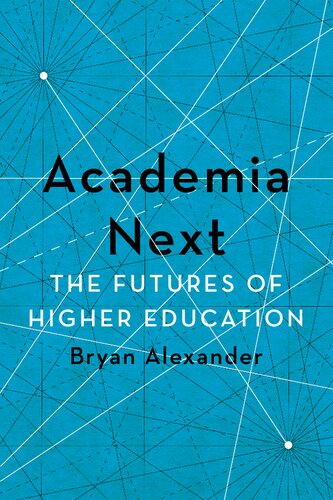

Most ebook files are in PDF format, so you can easily read them using various software such as Foxit Reader or directly on the Google Chrome browser.
Some ebook files are released by publishers in other formats such as .awz, .mobi, .epub, .fb2, etc. You may need to install specific software to read these formats on mobile/PC, such as Calibre.
Please read the tutorial at this link: https://ebookbell.com/faq
We offer FREE conversion to the popular formats you request; however, this may take some time. Therefore, right after payment, please email us, and we will try to provide the service as quickly as possible.
For some exceptional file formats or broken links (if any), please refrain from opening any disputes. Instead, email us first, and we will try to assist within a maximum of 6 hours.
EbookBell Team

0.0
0 reviewsFrom the renowned futurist, a look at how current trends will transform American higher education over the next twenty years.
2020 Most Significant Futures Work Award Winner, Association of Professional Futurists
The outlook for the future of colleges and universities is uncertain. Financial stresses, changing student populations, and rapidly developing technologies all pose significant challenges to the nation's colleges and universities. In Academia Next, futurist and higher education expert Bryan Alexander addresses these evolving trends to better understand higher education's next generation.
Alexander first examines current economic, demographic, political, international, and policy developments as they relate to higher education. He also explores internal transformations within postsecondary institutions, including those related to enrollment, access, academic labor, alternative certification, sexual assault, and the changing library, paying particularly close attention to technological changes. Alexander then looks beyond these trends to offer a series of distinct scenarios and practical responses for institutions to consider when combating shrinking enrollments, reduced public support, and the proliferation of technological options.
Arguing that the forces he highlights are not speculative but are already in play, Alexander draws on a rich, extensive, and socially engaged body of research to best determine their likeliest outcomes. It is only by taking these trends seriously, he writes, that colleges and universities can improve their chances of survival and growth. An unusually multifaceted approach to American higher education that views institutions as complex organisms, Academia Next offers a fresh perspective on the emerging colleges and universities of today and tomorrow.